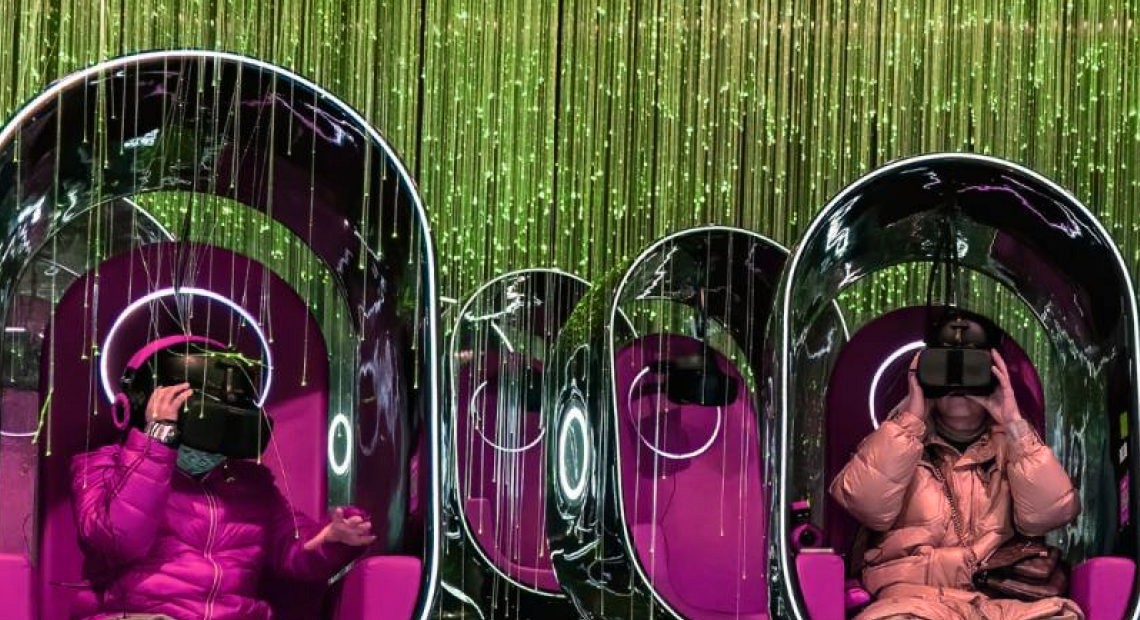Pick your metaverse
Video game maker NetEase Inc. has taken out metaverse related trademarks, as has search engine company Baidu Inc. Huawei Technologies Co. has positioned itself as a metaverse corporation. Claiming that its networking equipment would serve as the connecting tissue of the new digital world.
In addition the only snag for these businesses is that the Chinese government, which keeps them in business, may not share Zuckerberg’s enthusiasm for the notion of a fully immersive, real-time virtual reality universe.
The government of Xi Jinping has taken a series of steps to try to reduce the role that social media and the internet
In recent months, Xi Jinping’s government has taken a number of moves to try to limit the influence of social media and the internet in the lives of Chinese residents. Moreover the country’s video game regulator recently reinforced its already stringent restrictions. Additionally requiring that anyone under the age of 18 only play online games for an hour per night between Friday and Sunday.
The Communist Party’s grim phrase for online networks of ardent followers of Chinese pop singers. And actors is “fandom pandemonium,” according to state media. The government has gone so far as to completely remove some of the country’s biggest celebrities from the internet.
“There’s a notion that internet culture and fan culture are uncivilized, decadent, and divert attention away from what China needs to do” says Adam Segal. A China and cybersecurity expert at the Council on Foreign Relations, “and gaming plays into that as well.”

China’s reticent approach to gaming is perhaps a preview of its view of the metaverse
A cautious attitude toward gaming in China, combined with encouragement for young people. To participate in real-world sports, may suggest the nation’s metaverse outlook. It’s a viewpoint that contrasts sharply with that of Zuckerberg. Additionally others, who believe that massively multiplayer games and platforms like Fortnite and Roblox are the most accurate representations of our digital futures now available. It’s already feasible to witness the beginnings of a metaverse culture war.
In one corner would be the authoritarians eager to limit the metaverse
Authoritarians in one corner would be keen to limit the metaverse. Or even use it as a pretext for increasing current laws. The always-on character of the envisaged virtual world, as well as its hazy border with so-called meatspace, could offer potential new monitoring and limitation borders.
In an email, Yale Law School’s Robert Williams notes that the current understanding of what constitutes problematic online gaming could wind up extending. Additionally “in a social context where the distinctions between physical and digital reality are somewhat blurred.”
In the other corner would be ”evangelists” like Zuckerberg
Metaverse evangelists like Zuckerberg would be on the opposite corner. He lauded the ways the metaverse would allow us to cooperate more smoothly. Study in more engaging ways, work out more creatively. In addition play more interactively in his big-reveal talk at Facebook’s Connect conference two months ago.
Zuckerberg spoke to the world while going through vast virtual corridors that resembled Valhalla as planned by West Elm. Lighted by bright digital sunbeams. He talked about the kind of control he wants users to have in the metaverse while discussing privacy and safety.
“You’ll be able to choose when you want to be with other people. When you want to block someone from entering your space, or when you want to take a break and teleport to a private bubble to be alone,” he explained. The option of completely logging out of the metaverse was left from that list.
It’s conceivable to experience some whiplash between the authoritarian scolds and the big-tech metaverse cheerleaders. Personally, I find both scenarios a little unsettling. As they both point to a future in which we have less options rather than more.









 and then
and then